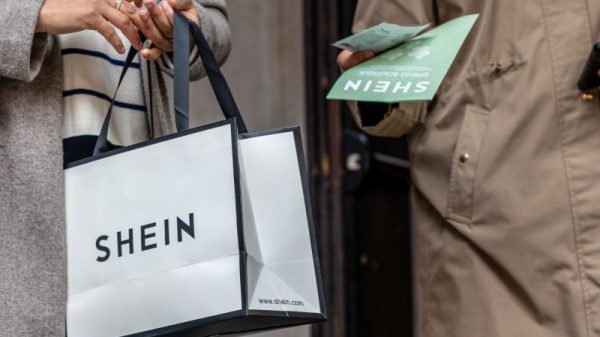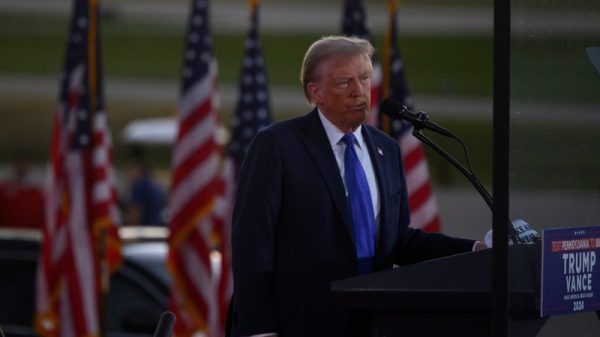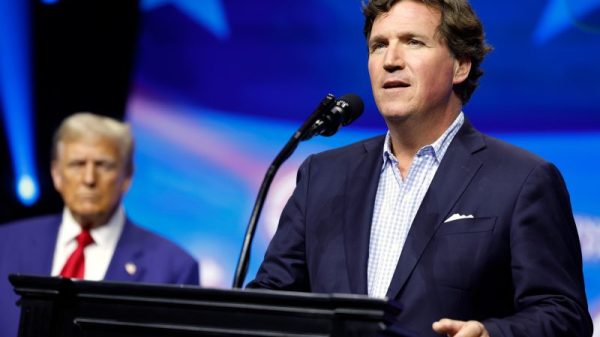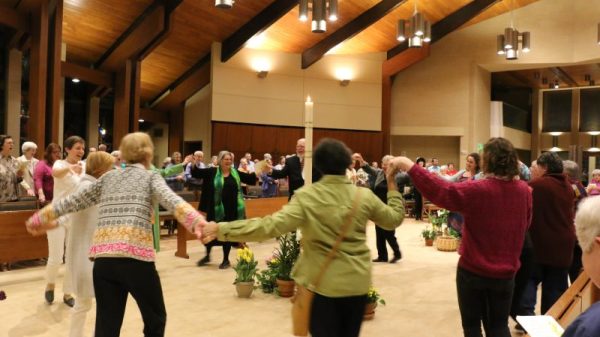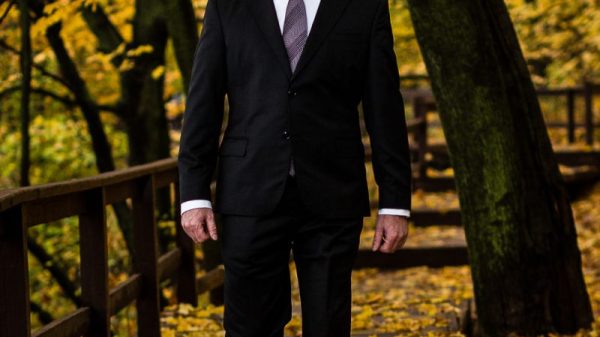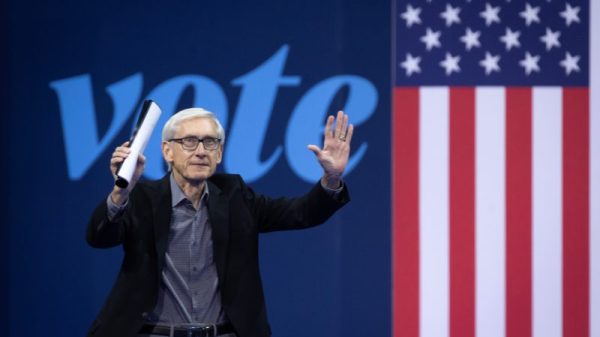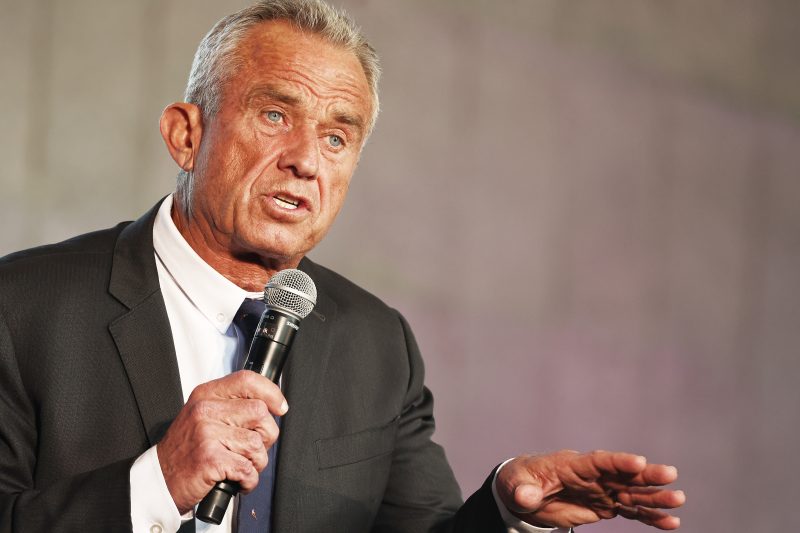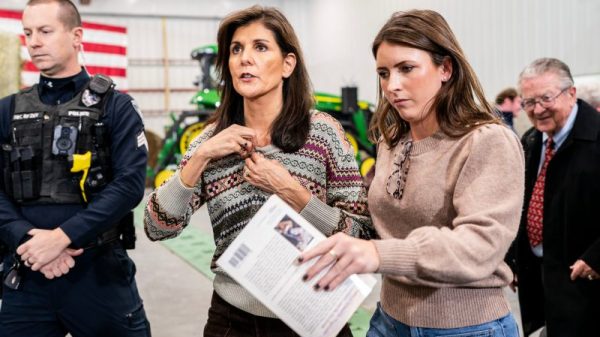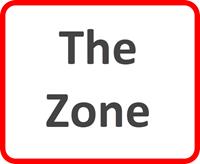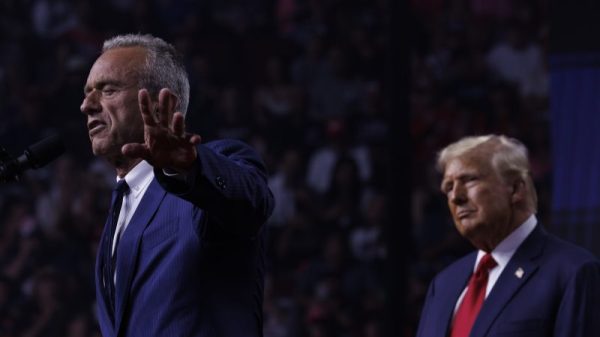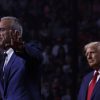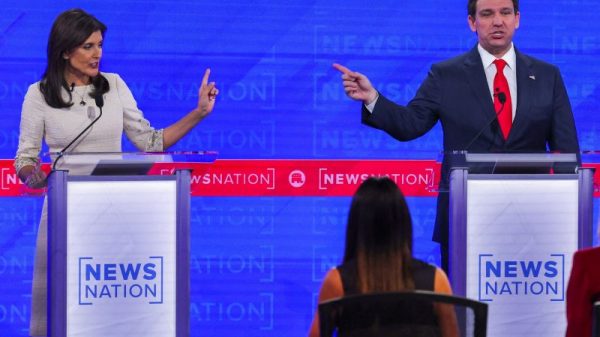Independent presidential candidate Robert F. Kennedy Jr. repeatedly advanced an argument Monday that President Biden poses a greater threat to democracy than Donald Trump, a comment that drew swift rebukes from several historians and experts.
Kennedy, speaking to CNN’s Erin Burnett on Monday night, criticized the Biden administration’s push for social media companies to monitor their platforms for medical misinformation. Kennedy was temporarily banned by Instagram for spreading misinformation online about vaccines. Kennedy claimed Biden was “censoring me” and is “weaponizing federal agencies.”
He added that Trump — who has alarmed some experts with rhetoric and stances they have compared to authoritarian leaders, plotted a more extreme second term and inspired his supporters to fight the results of an election he continues to falsely claim was stolen — is not as significant a threat to democracy.
“Him trying to overthrow the election clearly is a threat to democracy,” Kennedy said of Trump. “But the question was, who is a worse threat to democracy and what I would say is … I’m not going to answer that question, but I can argue that President Biden is.”
Earlier in the interview, Kennedy gave a lengthy defense of that argument, saying “the greatest threat to democracy is not someone who questions election returns,” but rather Biden, pointing to his administration’s exchanges with social media companies.
Daniel Ziblatt, a Harvard University political scientist and the co-author of “How Democracies Die,” said of Kennedy’s comment, “It’s a preposterous claim.” He added, “To be a politician committed to democracy, there are two cardinal rules: One must accept election outcomes, win or lose; one must not threaten or use violence to gain power. Donald Trump has clearly violated both rules, while President Biden never has.”
Ruth Ben-Ghiat, a New York University historian, said Kennedy’s remarks and similar claims from some Republicans that Biden has infringed on their rights could further instigate fear and anger on the political right, which she said was a worrisome trend.
Kennedy said he does not consider himself a spoiler for either Biden or Trump. But Biden’s allies condemned Kennedy’s attack and said it was an indication he is a “spoiler candidate” who is spreading “MAGA talking points.”
“With a straight face Robert F. Kennedy Jr. said that Joe Biden is a bigger threat to democracy than Donald Trump because he was barred from pushing conspiracy theories online,” Democratic National Committee senior adviser Mary Beth Cahill said in a statement. She went on to highlight the Jan. 6, 2021, attack on the U.S. Capitol by a pro-Trump mob and pointed to Trump’s prior comments about being a dictator only on “Day One” of his second term, which he later claimed he said in jest.
Some experts have warned that Trump’s embrace of authoritarian rhetoric poses a threat to democracy, as the former president has attempted to deflect criticism and portray Biden as anti-democratic. Democrats previously warned that attacks on Biden — such as when former primary challenger Dean Phillips argued he was a threat to democracy because the Minnesota congressman could not get on the Democratic primary ballot in some states — distract from Trump’s greater danger.
Biden allies have grown increasingly concerned that Kennedy could threaten the president’s chances at reelection, casting the scion of the famous Democratic family as a stalking horse for Trump’s movement and stepping up efforts to counter third-party bids. Kennedy, who left the Democratic Party in October to run as an independent in the general election, has increasingly ramped up attacks on Biden after previously supporting him in 2020.
Kennedy sued the Biden administration last year, arguing he was censored, and won a preliminary injunction in a Louisiana federal court in February. But the injunction was delayed until a similar case is decided by the U.S. Supreme Court.
Last month, the high court seemed prepared to reject an argument by Republican-led states that the Biden administration had limited free speech during the coronavirus pandemic. Rather, Justices Elena Kagan and Brett M. Kavanaugh suggested that government exchanges with social media platforms and media outlets are routine occurrences and wouldn’t constitute censorship.

